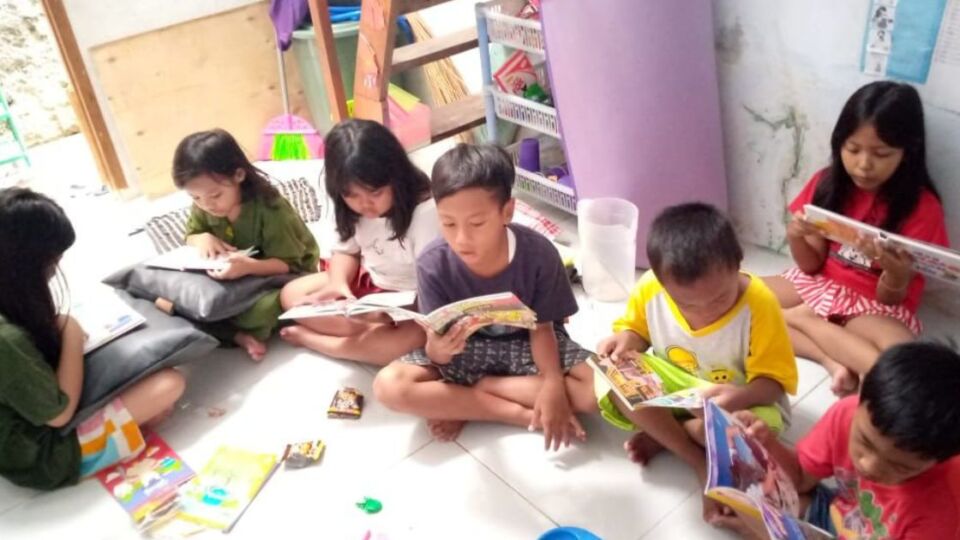Welcome to Legends of Jakarta, a series in which we highlight the people and organizations working tirelessly to bring positive change to the Indonesian capital and beyond. We also want to encourage readers to donate to and/or volunteer for the causes they hold dear.
In the second installment of this series, we spoke with Julinda Dewi Simbolon, executive director of Indonesian Street Children Organization (ISCO) Foundation, to discuss the problem of marginalized youths in Indonesia, the incredible work the foundation has already accomplished, and what lies ahead.
The interview below has been edited for clarity.
What is the ISCO Foundation?
ISCO Foundation is a non-governmental organization that was established in May 1999 to address the social impacts of the economic and monetary crisis that had affected Indonesia. We aim to help marginalized communities, particularly those living below the poverty line, through field teams located in impoverished areas in Indonesia’s major cities.
ISCO has helped thousands of underprivileged children in three major cities in Indonesia, Jakarta, Medan, and Surabaya, to obtain education from kindergarten to university. As of the 2022/2023 academic year, there are more than 2,000 children under ISCO’s care.
The foundation aims to provide equal opportunities for every child to obtain education, recognition, and hope for the future, prevent marginalized children from becoming street children or child laborers, and provide full support for their education and future.
ISCO has five major programs, including education assistance for kindergarten to university, children’s activity centers, nutrition and health, protection and advocacy for children’s rights, and kindergarten programs for children living in densely populated slums.
Who are the people behind ISCO?
ISCO was founded by two expats, Pascal Lalanne (France) and Josef Fuchs (Austria), who were working in Indonesia during the 1998 monetary crisis. They observed a large number of children on the streets during school hours, which prompted them to launch a team consisting of Indonesian citizens, which is now known as the ISCO Foundation.

What are some of ISCO’s most notable achievements?
Thirty-two children under ISCO’s care, who have been with the foundation since kindergarten, have graduated from public universities with bachelor’s degrees, and 23 are currently enrolled in public universities.
Additionally, 445 children under ISCO’s care have graduated from high school, 1,289 from junior high school, and 2,371 from elementary school.
ISCO Foundation has provided assistance to 6,097 children in Indonesia, and 1,510 of those children have obtained birth certificates through the foundation’s programs.
In what areas can the government do better for street children?
Street children and all marginalized children can be protected if their rights are fulfilled, such as the right to education, health, protection from violence, and others. It can all start with eliminating requirements that make it difficult for children to attend school. For example, children must have a National Identification Number (NIK), birth certificate, and more to attend public school. Dispensations should be given so that all children have access to public schools. In addition, the fulfillment of children’s identity rights should be facilitated by the government so that every child has a clear birth certificate and identity.
With education, marginalized children will have better chances of not being oppressed, and with identity, they cannot be traded or employed arbitrarily. Therefore, the government’s initial area of focus in protecting street children is to guarantee these rights, which are already stated in the 1945 Constitution.

What are ISCO’s goals in the future?
This year we want to intensify our literacy program so that ISCO children enjoy reading. According to Indonesia’s PISA (Programme for International Student Assessment) 2018 Results, students who are socioeconomically capable outperform those who are less fortunate in terms of reading. The gap is getting wider every year, meaning that students who are less fortunate from a socioeconomic perspective have lower reading skills. This is an important issue because literacy plays a big role in daily life, for filtering hoaxes, for education, for accessing jobs and other benefits.
That is why we are promoting a Love of Reading movement in all ISCO centers. The target is for all children and parents to get close to books and read quality books according to their interests and needs.
How can our readers help ISCO?
- Volunteer to teach at ISCO workshops or other ISCO activities
- Support ISCO children by donating school supplies, milk, vitamins, etc.
- Support ISCO children by providing financial assistance for education scholarships.
- Support ISCO and follow us online:
- www.iscofoundation.org
- Instagram: @iscofoundation
- Facebook: ISCO Foundation
- Youtube: ISCO Foundation
- Whatsapp : +62 899-0033-356
More Legends of Jakarta




